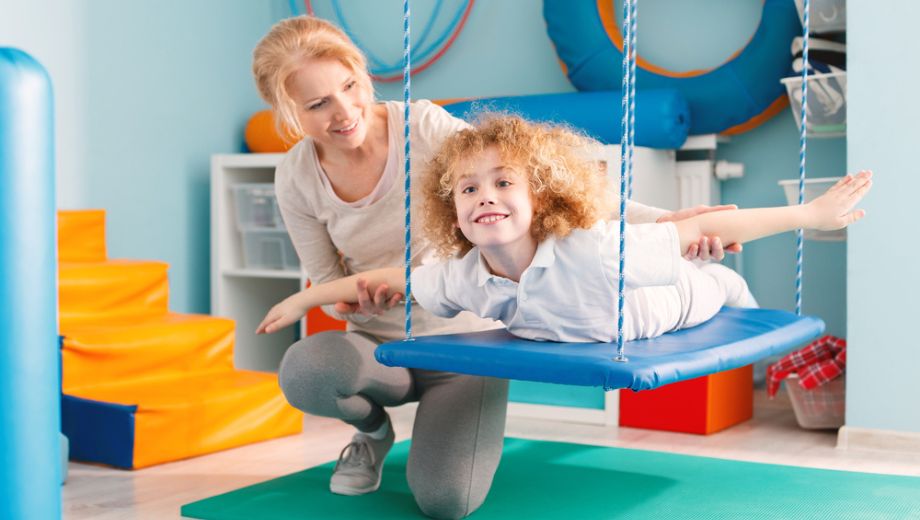
Occupational Therapy For Kids and it’s benefit
October 9, 2024
Occupational Therapy (OT) is a type of therapy focused on helping individuals develop, recover, or maintain the skills needed for daily living and working. The goal is to enable people to participate in activities that are meaningful and important to them, despite any physical, cognitive, or emotional challenges they might face.
Key Aspects of Occupational Therapy for Kids
- Assessment: Therapists evaluate a person’s abilities, needs, and challenges. This may include assessing motor skills, cognitive functions, sensory processing, and emotional well-being.
- Personalized Interventions: Based on the assessment, therapists develop customized treatment plans to address specific needs. This can involve exercises to improve physical abilities, strategies to enhance cognitive skills, or adaptations to the environment to support daily activities.
- Daily Living Skills: OT often focuses on improving skills necessary for daily living, such as dressing, grooming, cooking, and managing personal finances. For children, this might include activities that help with fine motor skills, self-care routines, and social interactions.
- Adaptive Strategies: Therapists may teach techniques or provide tools to help individuals perform tasks more effectively or independently. This can include using assistive devices or modifying environments.
- Developmental Support: For children, OT can support developmental milestones, help with sensory processing issues, and address difficulties with motor skills, social interactions, or self-regulation.
- Rehabilitation: For those recovering from injury or illness, OT focuses on regaining skills and adapting to any long-term changes in function.
- Mental Health: OT also addresses emotional and psychological aspects by helping individuals develop coping strategies, manage stress, and improve overall well-being.
Read more-Importance of books and reading in montessori Education
The Benefits of Occupational Therapy for Kids
Occupational therapy (OT) is a vital intervention for children who face challenges in physical, sensory, cognitive, or emotional development. It helps kids improve essential life skills, enabling them to become more independent and thrive in everyday activities. Whether a child struggles with fine motor skills, sensory processing, or social interactions, occupational therapy can provide individualized strategies to overcome these challenges. Here are some key benefits of occupational therapy for kids:
1. Improvement in Fine Motor Skills
Children who have difficulty with tasks like writing, cutting, buttoning clothes, or holding utensils can benefit greatly from occupational therapy. OT helps improve fine motor coordination by engaging children in activities that strengthen their hand muscles, improve dexterity, and enhance hand-eye coordination. This leads to better performance in daily tasks like dressing, feeding, and school-related activities.
2. Enhances Sensory Processing
Many children experience sensory processing issues where they may be overly sensitive or under-responsive to stimuli like light, sound, touch, or movement. Occupational therapists work with kids to help them process sensory information more effectively, teaching them coping mechanisms and ways to regulate their responses. This is particularly beneficial for children with sensory processing disorders, autism, or ADHD.
3. Boosts Social and Emotional Skills
Occupational therapy for kids also supports emotional and social development. Through guided play and structured activities, children learn to interact with peers, understand social cues, and express their emotions appropriately. For children who have difficulty making friends or participating in group settings, OT provides tools and strategies to improve social interactions, which boosts self-esteem and emotional resilience.
4. Increases Independence in Daily Activities
A key focus of occupational therapy is helping children become more self-sufficient in their day-to-day lives. OT sessions often include training in activities of daily living (ADLs), such as dressing, eating, bathing, and grooming. By mastering these skills, children gain confidence in their ability to take care of themselves, reducing dependency on caregivers.
5. Supports School Readiness and Academic Success
Occupational therapy plays a significant role in preparing children for school by improving skills like sitting still, focusing, and following instructions. It also enhances the fine motor skills required for writing, drawing, and using classroom tools. For children with developmental delays or learning disabilities, OT can make a meaningful difference in their academic performance, leading to greater success and enjoyment in school.
6. Promotes Better Coordination and Physical Strength
Children who struggle with gross motor skills, such as running, jumping, or climbing, can benefit from occupational therapy. OT helps build muscle strength, balance, and coordination through exercises and activities that challenge physical abilities in a fun and engaging way. This is particularly helpful for kids with developmental delays, cerebral palsy, or other physical disabilities.
Therapeutic Techniques:
- Skill-building exercises
- Sensory integration activities
- Cognitive and behavioral strategies
- Adaptive equipment and modifications
Overall, Occupational Therapy aims to improve quality of life by enhancing an individual’s ability to perform daily activities and participate fully in life’s roles and routines. Occupational therapy provides children with the tools they need to overcome developmental challenges and lead more fulfilling lives. Whether improving motor skills, enhancing sensory processing, or boosting social and emotional well-being, OT empowers children to become more independent and successful in their daily activities. Early intervention through occupational therapy can have a lasting positive impact, supporting kids in reaching their full potential.


